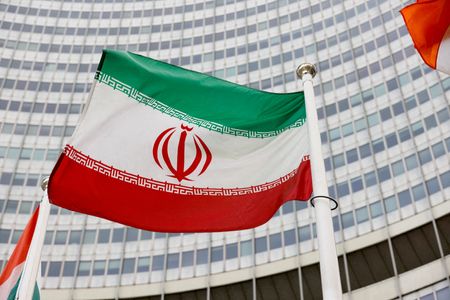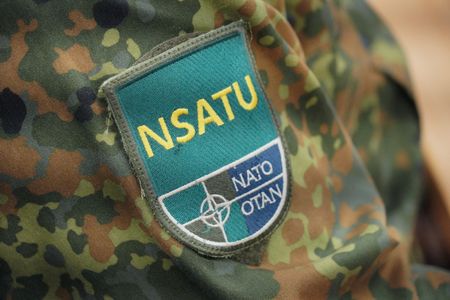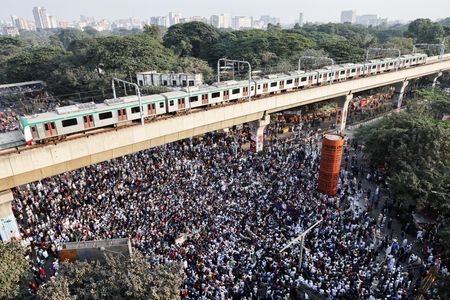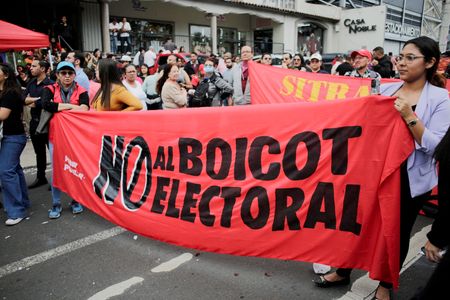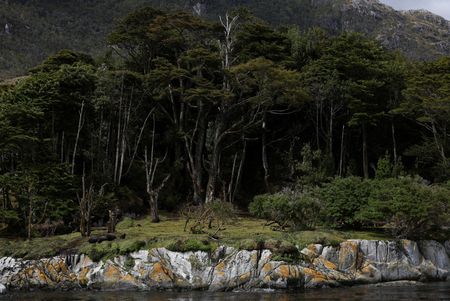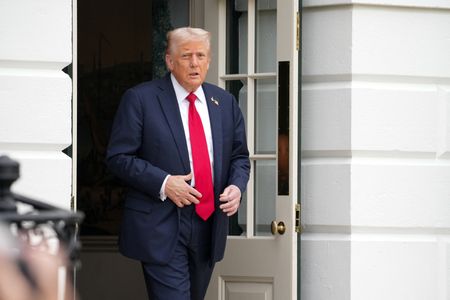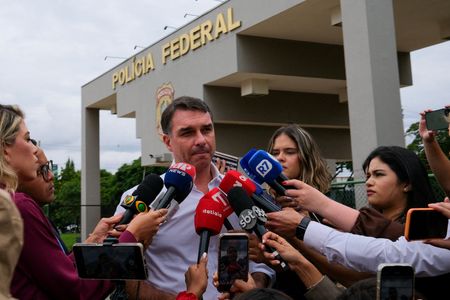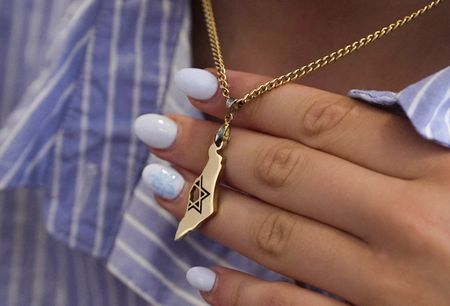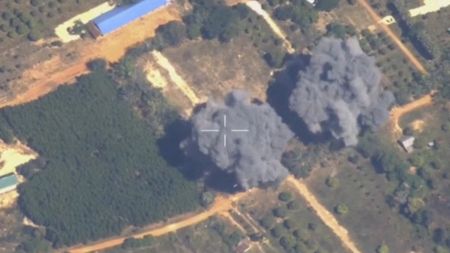By Francois Murphy, Parisa Hafezi and John Irish
VIENNA (Reuters) -The U.N. nuclear watchdog reached an agreement with Iran on Wednesday on replacing its surveillance cameras at a centrifuge-parts workshop that were removed after an apparent attack, easing a standoff that could have scuppered wider nuclear talks.
Those wider, indirect talks between Iran and the United States on salvaging the 2015 Iran nuclear deal are deadlocked, but Washington had threatened https://www.reuters.com/world/middle-east/us-threatens-escalation-with-iran-iaea-next-month-2021-11-25 to confront Tehran at the International Atomic Energy Agency’s 35-nation Board of Governors if it did not relent on Karaj this month.
Any such confrontation could have caused the collapse of the talks altogether, diplomats said.
“The agreement with Iran on replacing surveillance cameras at the Karaj facility is an important development for the IAEA’s verification and monitoring activities in Iran,” the IAEA said in a statement after diplomats told Reuters an agreement had been reached.
“It will enable us to resume necessary continuity of knowledge at this facility,” the IAEA said, adding the new cameras would be installed “in coming days”.
CONCERN
One of the IAEA’s four cameras at the workshop in the TESA Karaj complex was destroyed in an apparent sabotage attack in June that Iran blamed on Israel.
Iran then removed the cameras and has not let the IAEA return to replace them, angering https://www.reuters.com/world/middle-east/us-threatens-escalation-with-iran-iaea-next-month-2021-11-25 the United States and its allies.
Iran has shown the IAEA the cameras and “data storage media” containing their footage, except for the one containing the destroyed camera’s footage. The IAEA and Western powers have called https://vienna.usmission.gov/verification-and-monitoring-in-iran-u-s-iaea-bog-nov-2021 on Iran to explain where it is.
Wednesday’s agreement did not address the issue of the missing footage.
The bigger the gap in knowledge of what happened at Karaj, the greater the concern among Western states will be that Iran has secretly siphoned off key parts for centrifuges, machines that enrich uranium.
A senior diplomat said last month the IAEA does not know https://www.reuters.com/article/iran-nuclear-iaea-karaj-idAFV9N2NP00B whether Karaj is operational.
“I sincerely hope that we can continue our constructive discussions to also address and resolve all outstanding safeguards issues in Iran,” IAEA chief Rafael Grossi said in the statement.
Any impact on the wider talks on the Iran nuclear deal, apart from removing a potential spoiler, was unclear.
“This was a tactical move to avert a near-term diplomatic crisis, but the broader nuclear deal impasse remains,” Eurasia Group analyst Henry Rome said.
(Reporting by Francois Murphy and Parisa Hafezi in Vienna and John Irish in DohaWriting by Francois MurphyEditing by Alex Richardson and Gareth Jones)

